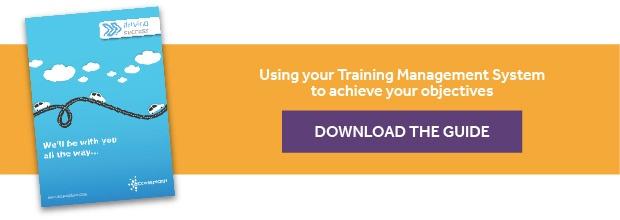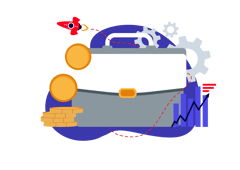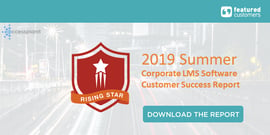How Important Is Customer Service When Buying Software?

Today marks the last day of National Customer Service Week (#NCSW). I thought that this made it the ideal opportunity to question whether customer service really is a key driver when purchasing software and to gain some feedback from individuals who have invested in software systems.
First off, what is customer service?
The Institute of Customer Service define it in their glossary as ‘the sum total of what an organisation does to meet customer expectations and produce customer satisfaction.’
So what is good customer service? This could be said to vary from consumer to consumer. Some customers are happy with very little contact with suppliers whereas others prefer a certain degree of hand holding.
Additionally, it is important to remember that customer service is not just about a friendly face or voice on the end of the line, it is knowing that your issues will be addressed, your comments will be taken on board and your suggestions will be used to drive improvements.
Whichever level of support and service you favour, do you think that it is applicable when purchasing software?
Now, with some software offerings such as a word processing package or an open source database, customer service may not be high on the list of priorities. But when it comes to a system that is going to run your business or at least a key part of it such as a CRM, LMS or training management system, a great level of customer service could be said to be essential.
As software functionality across suppliers moves to become more standardised what really sets providers apart? Is customer service the key?
3 key differentiators
1. Personal service
When you contact a supplier you want to know that you are a valued customer and not just another name on the list. Do you have a dedicated contact? Is that contact up to date with your history, your current objectives and how you are going to meet them? The Driving Success Programme incorporates all of this.
Another aspect of personal service is knowing that you are able to speak to someone when you need to and not be expected to manoeuvre through a maze of automated voice systems. Research suggests that 59% of customers prefer to call a business however 53% are irritated if they are unable to speak to a real person.
2. Quality knowledge
This could be said to be top of the list of requirements when purchasing software. Buying a piece of software is not like buying a new sofa. It requires time to set up and learn to use meaning that a high level of supplier system knowledge is crucial.
As well as in-depth system knowledge, experience of implementing and supporting system users and knowing the areas where issues can occur is a huge advantage and driver for customer satisfaction.
After implementation is complete is there a Support Helpdesk that you can contact with any queries? Additionally, is there an option for self help and to learn about best practice?
Ultimately, customer expectations cannot be met and customer satisfaction cannot be achieved if you are unable to get the guidance that you need to get the most out of the product.
3. A sound culture
No matter who you speak to within an organisation you are able to measure its culture. Find a company where all staff are polite, eager to help and to get the job done. Pre-purchase, a great way to gauge this is by asking the supplier to speak to existing customers.
Find out more about customer success culture and our Driving Success Programme by downloading the brochure.
 If you're interested, you can find out more in this article "Can Training Management Systems Increase Training Quality?"
If you're interested, you can find out more in this article "Can Training Management Systems Increase Training Quality?"
Other related articles include:
How To Improve Cross Channel Customer Service | Infographic


